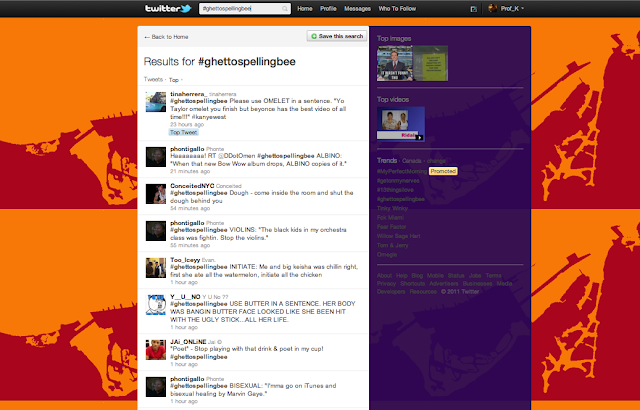“Black people—specifically, young black people—do seem to use Twitter differently from everyone else on the service. They form tighter clusters on the network—they follow one another more readily, they retweet each other more often, and more of their posts are @-replies—posts directed at other users. It’s this behavior, intentional or not, that gives black people—and in particular, black teenagers—the means to dominate the conversation on Twitter.”
So, these “blacktags” {perhaps made famous by #ifsantawasblack} are more prone to go viral. According to Baratunde Thurston, the Web editor of the Onion::
“Twitter works very naturally with that call-and-response tradition—it’s so short, so economical, and you get an instant signal validating the quality of your contribution. (If people like what you say, they retweet it.)”
Where things get fuzzy is who can participate in the joke. I think things are more nuanced than being in stark terms of participants being “in-group” {black} versus “out-group” {non-black}, but more in terms of an ironic
post-racial poking fun of cultural usage of language versus a poking fun of others for being out of the norms.
A few years back on NBC’s “The Office” {
‘Diversity Day’, s01e02}, Michael Scott {Steve Carell} did a Chris Rock impression about blacks being racist against other blacks. This impression caused complaints, necessitating the staff to engage in diversity training under orders from corporate::
Mainstream culture is still figuring out where the lines are with respect to being racist, since one person’s context isn’t the same as another’s. This fuzzy area makes it easy for people to get slammed for what they don’t see as being as offensive—a more nuanced version of the “who can say the N-word” debate.
Twitterversion:: [blog] Explanation of how blacktags like #ghettospellingbee go viral. Demographics? Likely cause: usage & follow patterns.
@Prof_K


Comments